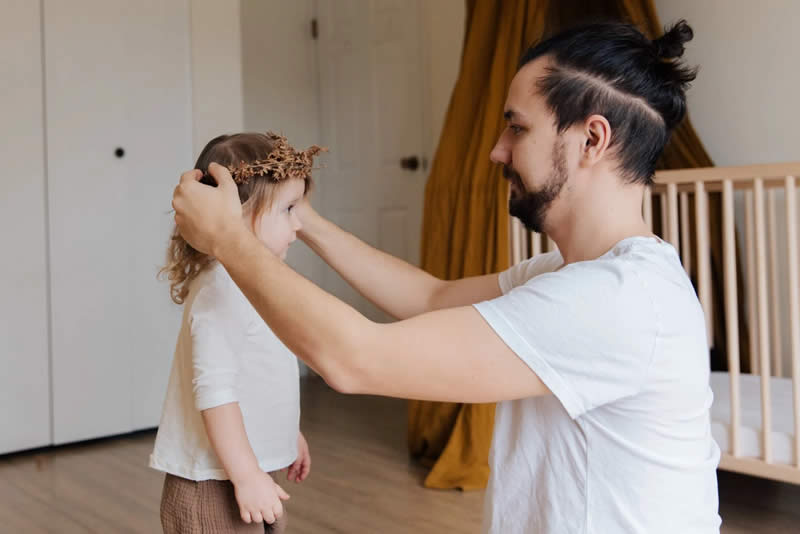Parenting with Love and Limits: A Guide to Raising Confident Children

Credit: Tatiana Syrikova / Pexels
Welcome to Parenting with Love and Limits: A Guide to Raising Confident Children. In this article, we’ll be discussing how to effectively parent your children with both love and limits. We’ll cover topics such as setting boundaries, communicating with your children, and providing them with structure and support.
This guide is for fathers, but all parents can benefit from the information contained herein. So whether you’re a brand new father or a seasoned dad, we hope you find this blog post helpful and informative. Thanks for reading!
Children need both love and limits in order to feel secure and confident.
Giving children both love and limits helps to create an environment that gives them the stability and security they need to thrive. However, striking a balance between the two is key to success. Setting healthy boundaries not only teaches them respect for others but also provides kids with consistency and structure in their lives, essential components for growth and development.
On the other hand, showering children with love and public displays of affection reinforces positive behaviors while helping build their self-worth. Children who are given proper doses of both love and limits will have a secure sense of self-esteem that helps guide them through life’s ups and downs.
It’s important to be consistent with your parenting so that children know what to expect
Keeping parenting consistent is an important but oftentimes difficult task. With ever-changing schedules, activities, and personalities, it can be hard to hold fast to the same expectations set for each child. However, routine and structure are key parts of helping kids feel secure and safe.
Establishing clear expectations and boundaries for acceptable behavior helps children know what is expected of them. Being consistent with your discipline also sets healthy boundaries with appropriate and reasonable consequences so that your children understand the importance of following rules.
Overall, having consistency with their parents provides reassurance that fosters independence and confidence in their actions.
Set clear boundaries for your children, and explain why they are important
Establishing firm boundaries for your children and explaining why these boundaries are important will help them become responsible, independent adults. Developing clear guidelines early on can also keep your kids safe as they learn more about the world. Setting rules and expectations help children understand what’s appropriate in different situations; plus, it can give them a sense of security and encourage self-discipline.
Of course, teaching your children why the boundaries are meaningful is crucial—they need to learn why certain behaviors are unacceptable or unsafe. Scheduling regular one-on-one conversations with each of your children to discuss the house rules and any changes that may have come up since their last chat is a great way to reinforce their importance.
Be patient with your children when they are testing boundaries – it’s normal behavior!
No parent is perfect, and that’s ok! Kids trying to test boundaries is an expected part of growing up. It can be hard to stay calm at the moment, especially when you feel like your kids are pushing every limit imaginable. But remember, there’s always a lesson to learn in these moments.
Children need their parents to be patient and consistent instructors; it gives them assurance and will help them understand the consequences of their actions much better in the long run. Maintaining a calm demeanor is essential so they can take away those meaningful life lessons. So go ahead and take a breath before responding – we guarantee it’ll make all the difference in how your children interpret the situation!
Reward good behavior with praise and attention, instead of material things.
When you want to encourage your child to continue with good behavior, praising them instead of immediately offering material rewards is always the best way to go. Praise helps to build self-confidence and shows your kids that their behavior is appreciated and noticed. When you give verbal positive reinforcement, it can remind them how good it feels when someone recognizes and validates their efforts.
Additionally, relying on material rewards rather than praise can lead them to expect external validation for everything they do. Doing this sets up an environment where kids rely on receiving external recognition for their efforts rather than feeling pride in their own accomplishments. Instead of a toy or a special treat, try giving your children hugs, sharing words of encouragement, and being sure to make time for quality one-on-one bonding moments with your little ones – they’ll love it more!
Finally, remember that every family is different – there is no one “right” way to parent!
Parenting can be one of the hardest things you’ll ever do. It can be incredibly overwhelming to navigate all of the conflicting advice, but if there’s one thing to keep in mind it’s that every family is unique and different. There is no single “right” way to parent – what works for one might not work for another!
Each situation carries its own complexities and understanding those is key to deciding which parenting style works best for you and your family. So, don’t be afraid to look outside the box and venture away from societal conventions when it comes to parenting – you might be surprised at how freeing it can feel!
Children need a balance of love and limits in order to feel secure and confident. It’s important to be consistent with your parenting so that children know what to expect. Set clear boundaries for your children, and explain why they are important. Be patient with your children when they are testing boundaries – it’s normal behavior!
Reward good behavior with praise and attention, instead of material things. Finally, remember that every family is different – there is no one “right” way to parent!


